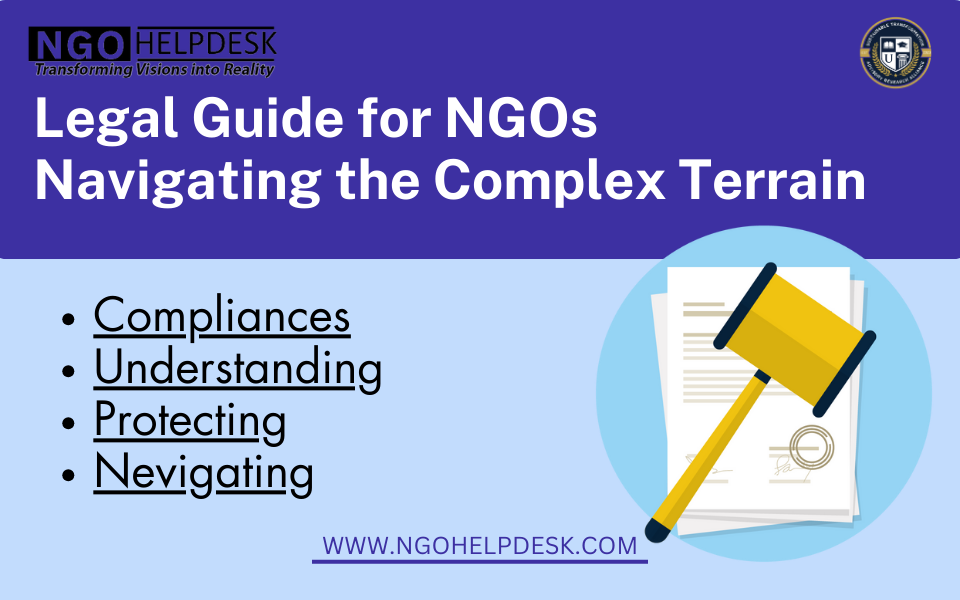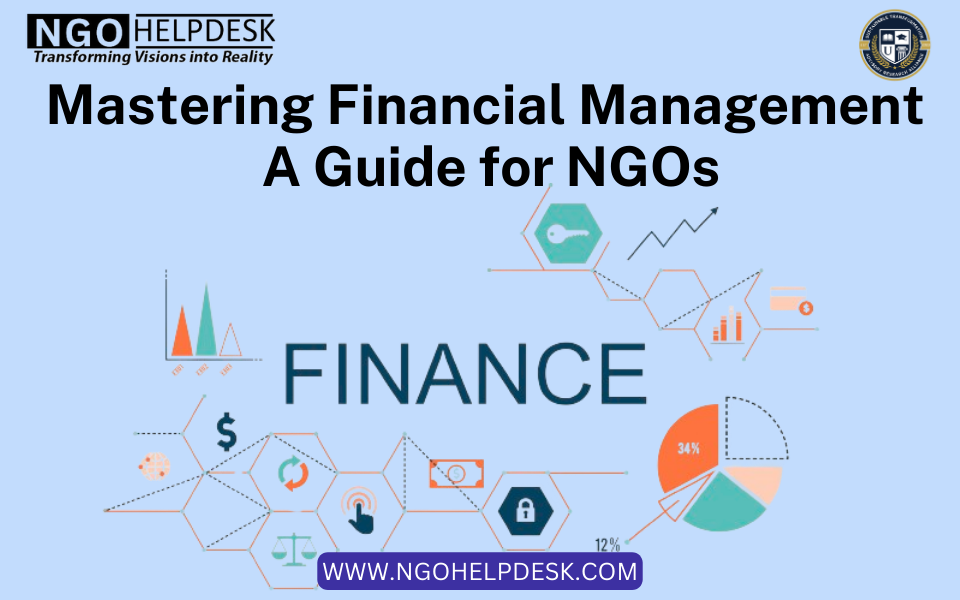
Introduction:
As stewards of social change, Non-Governmental Organizations (NGOs) navigate a multifaceted legal landscape. Understanding and adhering to legal requirements are crucial for ensuring compliance, mitigating risks, and safeguarding the organization’s mission. In this comprehensive guide, we delve into the legal considerations for NGOs, covering compliance with local and national laws, tax regulations, intellectual property rights, and employment laws pertinent to nonprofit organizations.
Compliance with Local and National Laws:
NGOs operate within a framework of laws and regulations that vary across jurisdictions. It’s essential to research and understand the legal requirements relevant to your organization’s location. This may include registration with government authorities, adherence to reporting obligations, and compliance with laws governing charitable activities, fundraising, and advocacy. Staying abreast of changes in legislation ensures that the NGO operates within the bounds of the law and maintains its legal standing.
Understanding Tax Regulations:
Tax considerations are integral to the financial sustainability of NGOs. Depending on the jurisdiction and the organization’s activities, NGOs may be eligible for tax-exempt status or subject to certain tax obligations. It’s essential to comprehend the tax regulations applicable to nonprofit organizations, including eligibility criteria for tax exemption, filing requirements, and potential tax liabilities. Seeking guidance from tax professionals or legal advisors specializing in nonprofit law can provide clarity on tax-related matters and ensure compliance with applicable regulations.
Protecting Intellectual Property Rights:
Intellectual property (IP) rights play a vital role in safeguarding the creative and innovative outputs of NGOs. Whether it’s branding elements, publications, or proprietary technologies, protecting intellectual property assets is paramount. Consider registering trademarks, copyrights, or patents to secure exclusive rights to your organization’s intellectual property. Additionally, establish policies and procedures for licensing and usage to prevent unauthorized use or infringement of intellectual property rights.
Navigating Employment Laws:
Employment laws govern the relationship between NGOs and their employees, volunteers, and contractors. Understanding employment regulations, including labor rights, non-discrimination laws, and workplace health and safety standards, is essential for maintaining a compliant and equitable work environment. Develop clear employment policies, contracts, and procedures that align with legal requirements and promote fair treatment of all personnel associated with the organization.
Conclusion:
Navigating the legal landscape is a fundamental aspect of NGO management, ensuring compliance, mitigating risks, and upholding the organization’s integrity. By understanding and adhering to legal considerations, NGOs can operate effectively within the confines of the law, fostering trust with stakeholders and advancing their mission with confidence.





